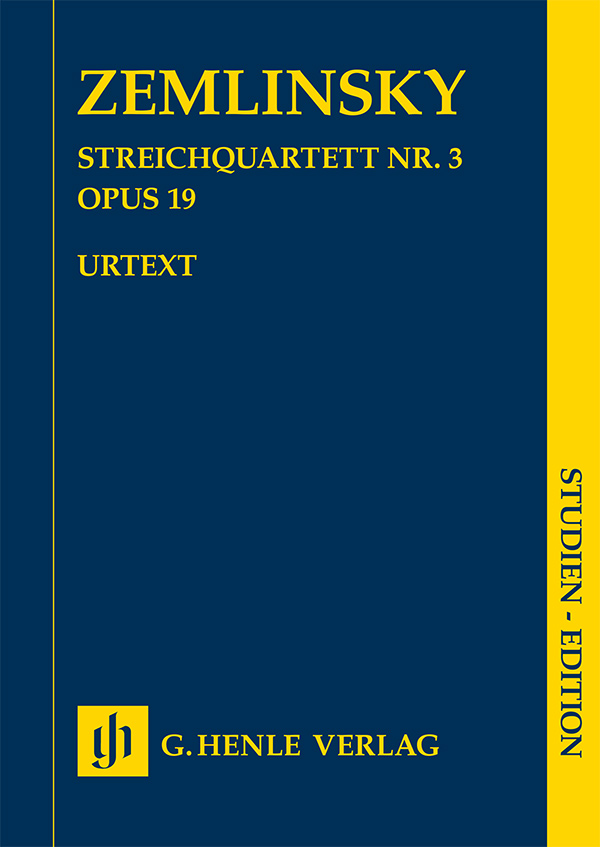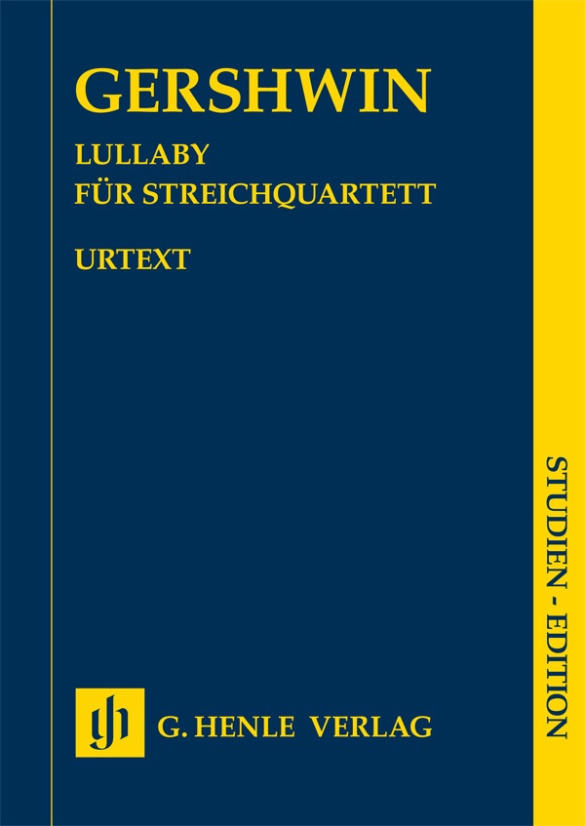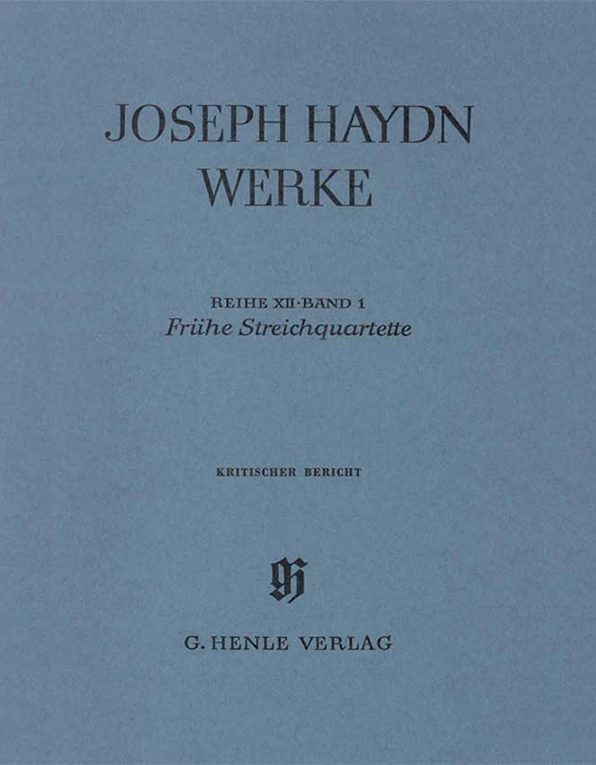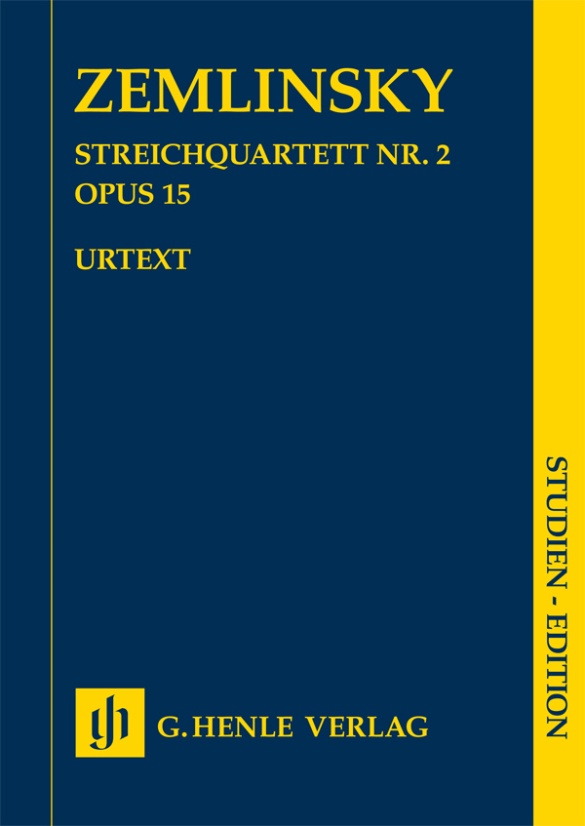

Alexander Zemlinsky
String Quartet no. 2 op. 15
Alexander Zemlinsky’s music was long unjustly overshadowed by what was regarded as the “more progressive” Second Viennese School. Although Zemlinsky was close friends with its protagonist Arnold Schönberg, he never did take the latter’s radical step into dodecaphony. At the same time, he composed works that were no less original or fully fledged. Composed between 1913 and 1915, his Second String Quartet in particular pushed the contemporaneous understanding of form and tonality to its limits. With just one movement but spanning over 1,200 measures, this multi-faceted work numbers among the most significant contributions to the genre of the time and has long merited a critical new edition.
The Urtext edition by G. Henle Publishers corrects many errors and inaccuracies in the first edition that came to light after careful comparison with the autograph sources in Vienna and Washington. For the first time, too, the metronome markings that survive only in one of Zemlinsky’s letters have been incorporated. Editorial work was kindly supported by the Alexander Zemlinsky Endowment Fund in Vienna.
Content/Details
About the Composer
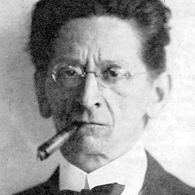
Alexander Zemlinsky
One of the most important conductors and composers of opera in the first third of the twentieth century, who attained the recognition he deserved only in the 1970s.
| 1871 | Born in Vienna on October 14. Piano instruction beginning at age 4. |
| 1884–92 | Education at the Conservatory of the Gesellschaft der Musikfreunde (Society of Friends of Music) in Vienna. Early chamber music in the style of Brahms. |
| 1895/96 | Founder and director of the amateur orchestra “Polyhymnia,” where he meets Schönberg; beginning of their friendship, though he does not pursue the path to atonality and later criticizes Schönberg’s twelve-tone technique. |
| 1900–03 | Principal conductor at the Carltheater in Vienna. |
| from 1903 | Instructor at the Schwarzwald school, where he teaches Berg, Horwitz, Jalowetz, E. Stein, and Webern. |
| 1904–06 | Composition of the opera “Der Traumgörge” (“Görge the Dreamer”). |
| 1904–11 | Music director of the Vienna Volksoper. |
| 1907 | Conductor at the Vienna Court Opera. |
| 1910 | Premiere in Vienna of his opera “Kleider machen Leute” (“Clothes Make the Man”). |
| 1911–27 | Kapellmeister at the German Theater in Prague. Engaged as instructor at the German Academy for Music and Fine Arts, as rector after 1920. Composition of the String Quartet No. 2; the Lyric Symphony, Op. 18 (1922/23); the “Six Maeterlinck Songs,” Op. 13 (1910/1913); and the Wilde operas “Eine florentinische Tragödie” (“A Florentine Tragedy,” premiere 1917) and “Der Zwerg” (“The Dwarf,” premiere 1922). |
| 1927–30 | First Kapellmeister at the Berlin Kroll Opera under Klemperer. Engaged as instructor at the Academy of Arts (choral class). |
| 1933 | Premiere in Zurich of the opera “Der Kreidekreis” (“The Chalk Circle”). Return to Vienna because of the Nazi regime. |
| 1934 | Songs, Op. 22, on poems by Morgenstern and Goethe. Political circumstances prevent his engagements; contracts previously signed are nullified on account of his Jewish heritage. |
| 1935–38 | Composition of the opera “Der König Kandaules” (“King Kandaules”), which remained unfinished (premiere in 1996, completed by A. Beaumont). |
| 1938 | Emigration to the United States. |
| 1942 | Death in New York on March 15. |
About the Authors
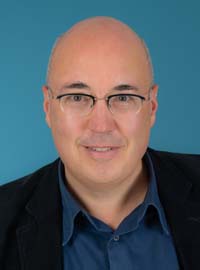
Dominik Rahmer (Editor)
Dr. Dominik Rahmer, born in 1971 in Mainz, studied musicology, philosophy and maths in Bonn. He did his Magister Artium in 1999 and his doctorate in 2006 with a thesis on the music criticism of Paul Dukas.
From 2001 to 2011 he was employed at Boosey & Hawkes/Bote & Bock in Berlin, where he also worked on the Critical Edition of the Works of Jacques Offenbach (OEK). Since 2011 he has been an editor at G. Henle Publishers in Munich, with a particular focus on French and Russian music and works for wind instruments.
Product Safety Informations (GPSR)

G. Henle Verlag
Here you can find the information about the manufacturer of the product.G. Henle Verlag e.K.
Forstenrieder Allee 122
81476 München
Germany
info@henle.de
www.henle.com
De vermakelijke inleiding, die de moeizame uitvoeringsgeschiedenis van het werk en de band tussen Zemlinsky en Schönberg beschrijft het keurige commentaar en de helemaal achterin verstopte woordenlijst completeren deze moeilijk op onnauwkeurigheden te betrappen editie.
de nieuwe muze, 2021Well done to Henle for producing a beautiful copy of this neglected work.
Stringendo, 2021recommendations
autogenerated_cross_selling
Further editions of this title
Further editions of this title


